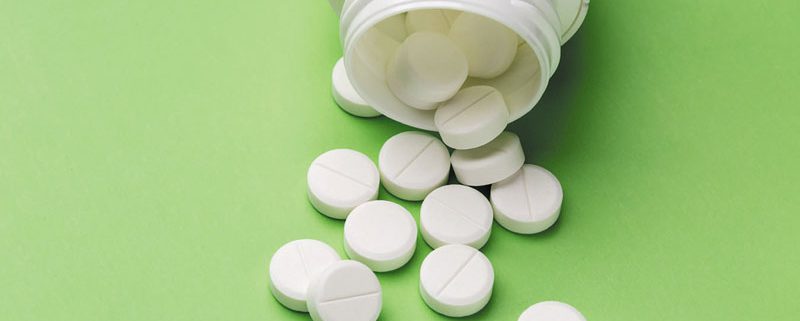Headache-Pill Aspirin Could Be A New Way To Tackle Impotence
Headache-pill aspirin could be a new way to tackle impotence, as almost eight out of ten men were helped by the drug after six weeks of daily therapy of low dose aspirin, according to new research.
The number of men who were able to physically have satisfactory intercourse with their partners more than doubled.
Low dose aspirin, already used to help prevent heart attacks and strokes in people at high risk, by preventing clots and reducing inflammation.
It is thought to work in impotence or erectile dysfunction, by thinning the blood and increasing blood flow to the penis. It may also work by increasing levels of nitric oxide, a gas which widens blood vessels. Viagra also works by increasing levels of the gas.
It’s estimated that erectile dysfunction (ED), which is the inability to have an erection that is satisfactory for sexual intercourse, affects around half of men aged 40 and over to some degree. Although stress and other psychological and social factors can be involved, the main physical cause is vascular problems where not enough blood gets to the penis.
Narrowing of blood vessels as a result of advancing age or associated with heart disease, diabetes, and other conditions, is the main cause. Vascular problems have been estimated to be involved in 90 per cent of cases of ED.
Drugs like Viagra, which works by getting the penile arteries to dilate so that more blood can flow in, can have side effects – headache, back pain and visual disturbance. They also don’t work for all men, and are unsuitable for men with angina. They have to be taken well in advance of sexual intercourse to allow the effective drug concentrations to be reached, which can have an effect on spontaneity.
In the new research, reported in the journal International Urology and Nephrology, doctors looked at the effects of low dose aspirin – 100mg – compare to placebo on men with ED. Aspirin has a number of uses, from relieving pain at high doses (around 300mg) to reducing the risk of serious problems such as heart attacks and strokes at lower dosages.
Nearly 200 men aged 18 to 76 were give aspirin or placebo and treated for six weeks, and ED symptoms and assessments, including sexual intercourse reports and frequency, taken before and after therapy, were compared.
Results show that the number of men who were able to have an erection long enough for successful intercourse increased from 31 per cent to 78 per cent in those taking aspirin..
The number of men with moderate forms of impotence who were able to have a erection hard enough for penetration went up to 96.4 per cent. Almost a third of men with the most severe form of ED were able to have satisfactory sex, nearly double number before treatment started.
But in the men taking the dummy drug there was little change, with only around 40 per cent having satisfactory sex before and after.
“When compared with the placebo group, aspirin-treated subjects showed a significant improvement in all effectiveness measures,” say the researchers from Istanbul Medipol University,
“This is the first clinical study investigating the effect of aspirin in erectile dysfunction,” say the researchers.
Exactly how aspirin could have such an effect is unclear, but one theory is that it makes the blood thinner and less sticky so that more blood can get into the penis. It also helps to stop the blood’s clotting cells, called platelets, from sticking together,
Professor Raj Persad, consultant urologist with Bristol Urology Associates said,
“If these results are confirmed in larger trials, aspirin could be a very effective and inexpensive treatment for erectile dysfunction. We should always be mindful of the fact that in some patients and the elderly, even one aspirin can cause severe gastrointestinal upset and or bleeding.”


